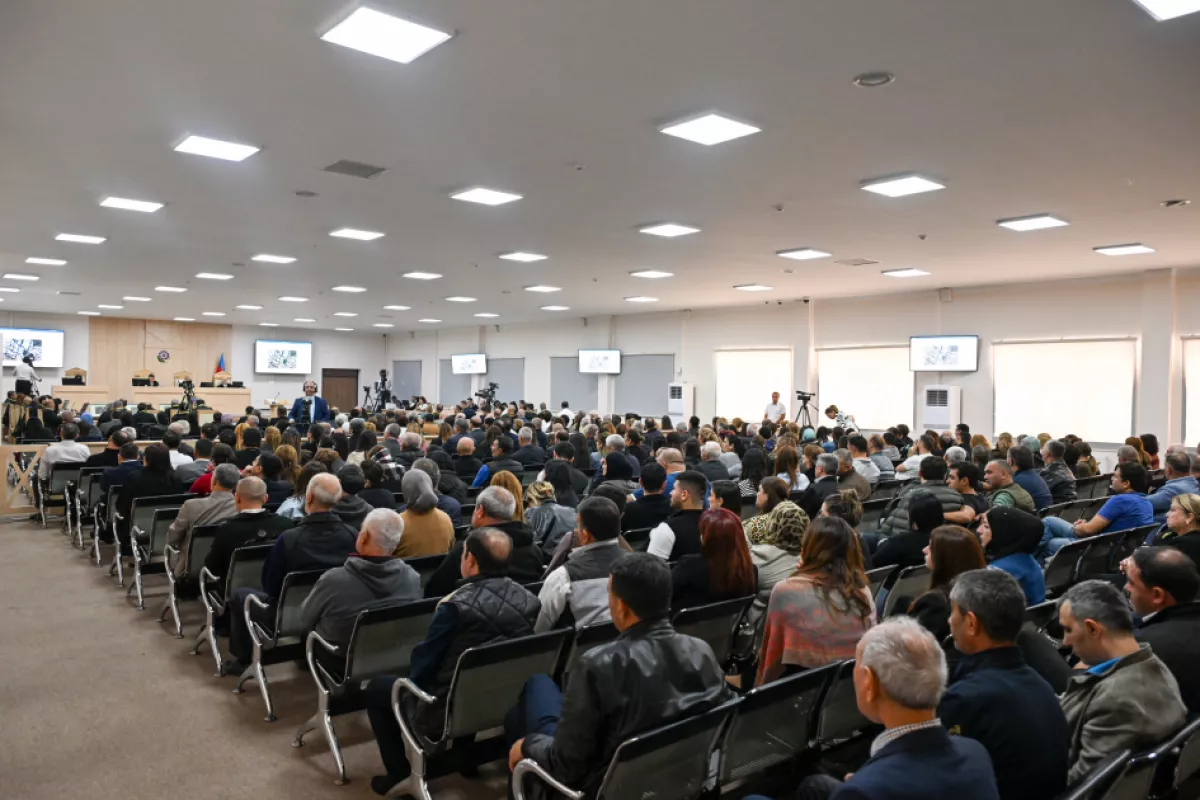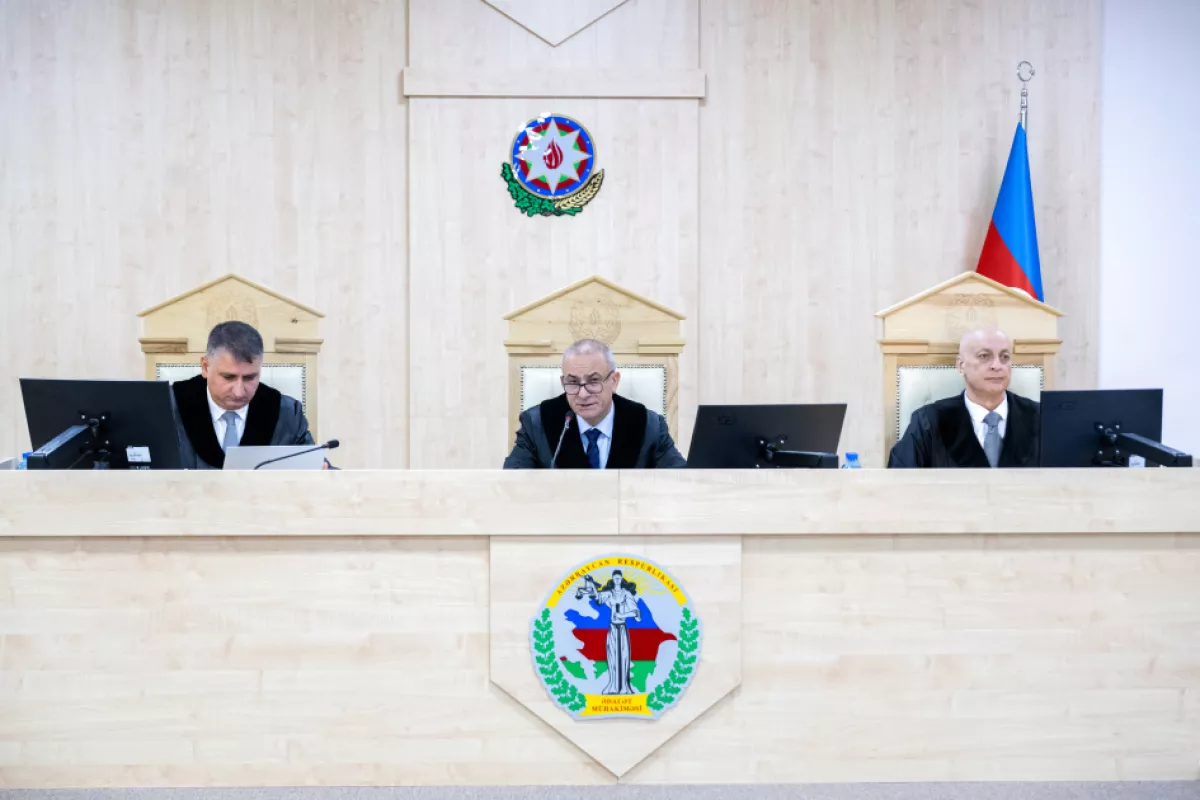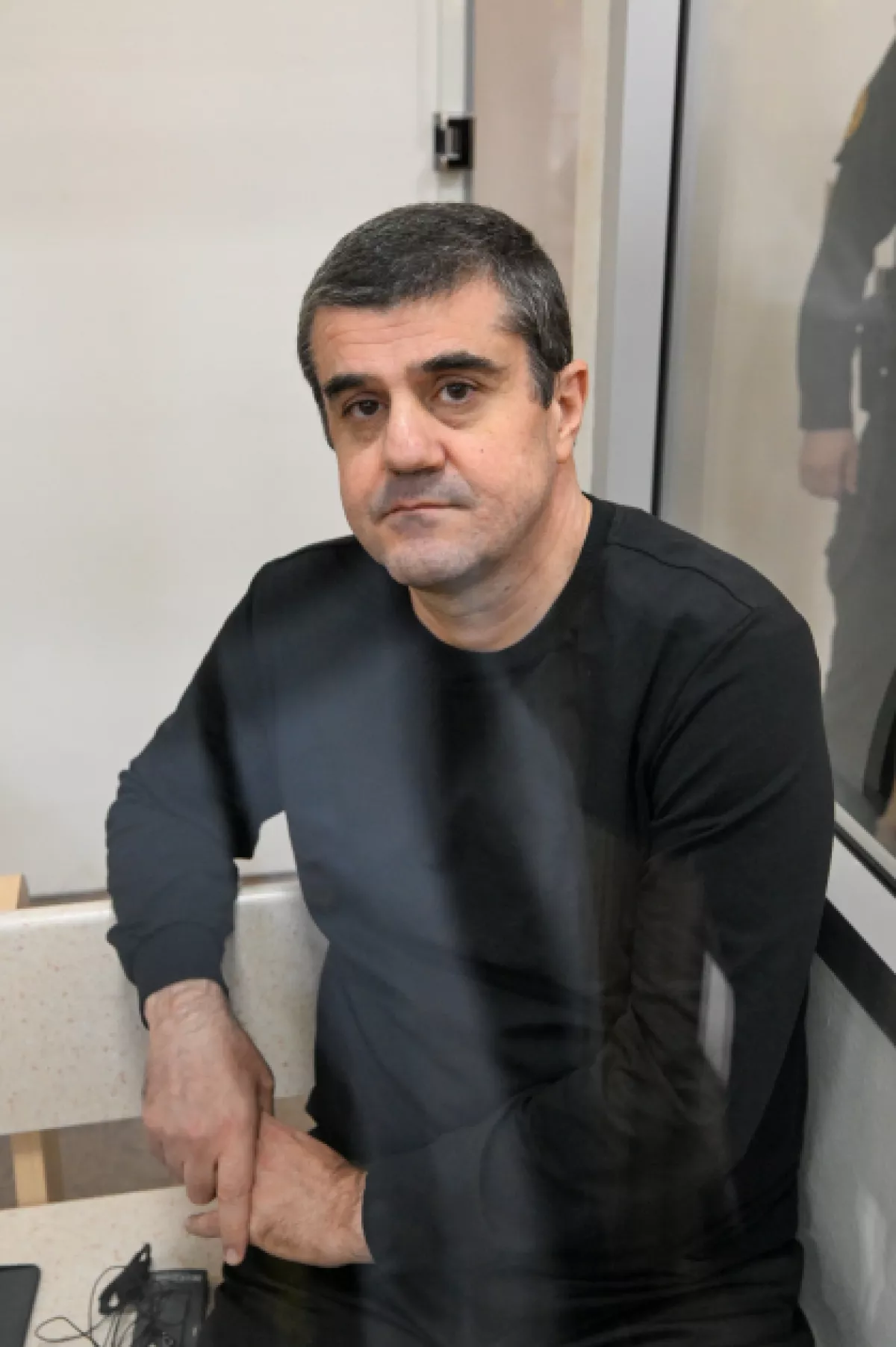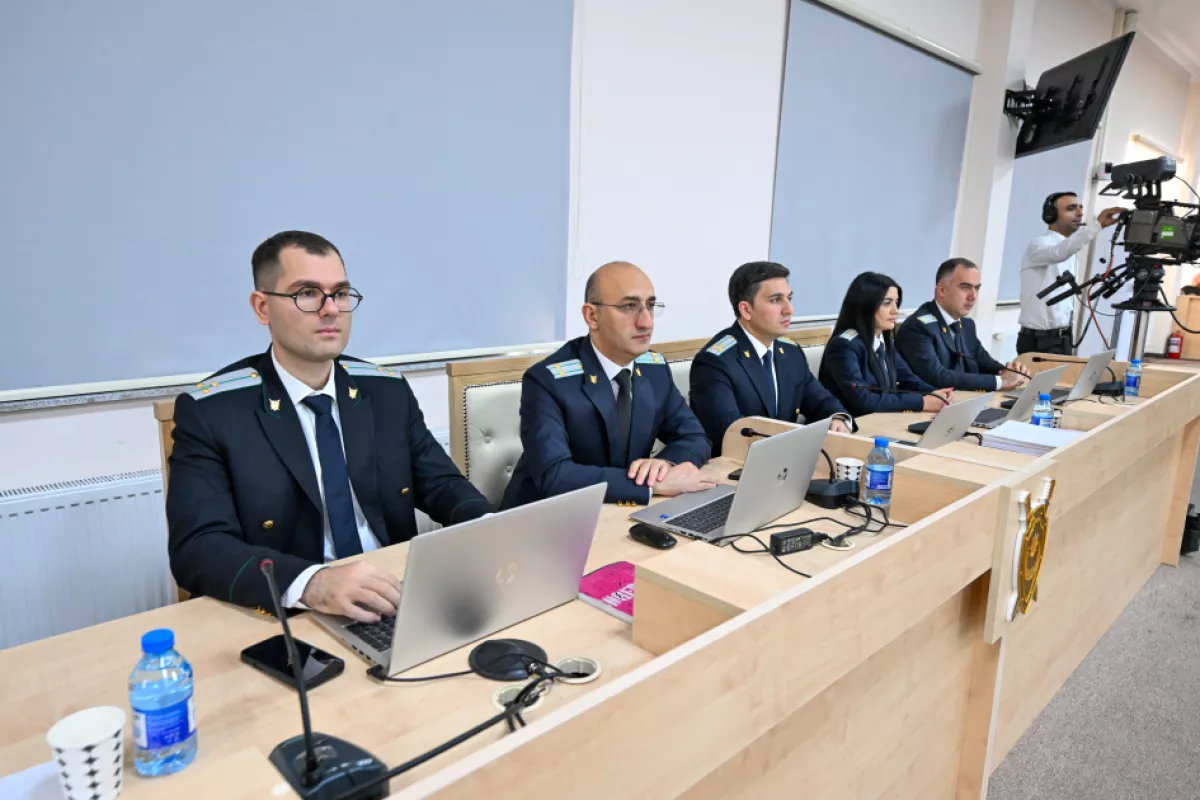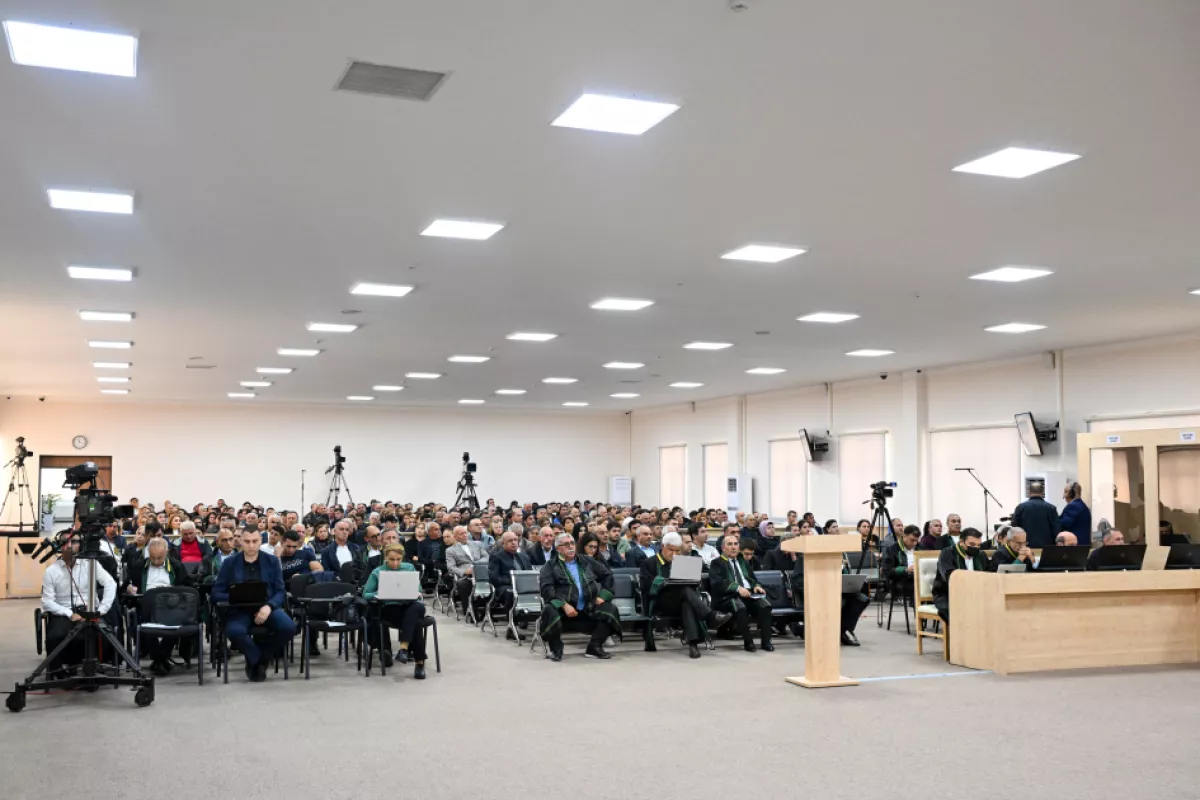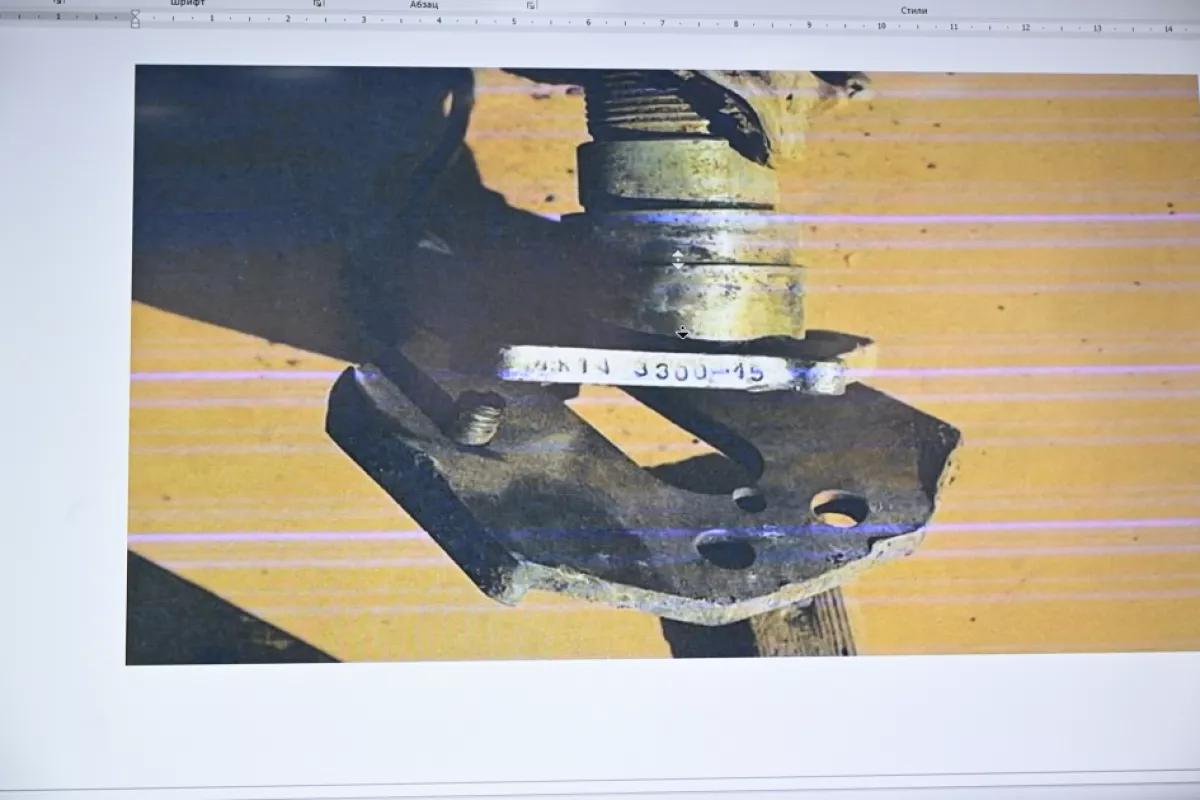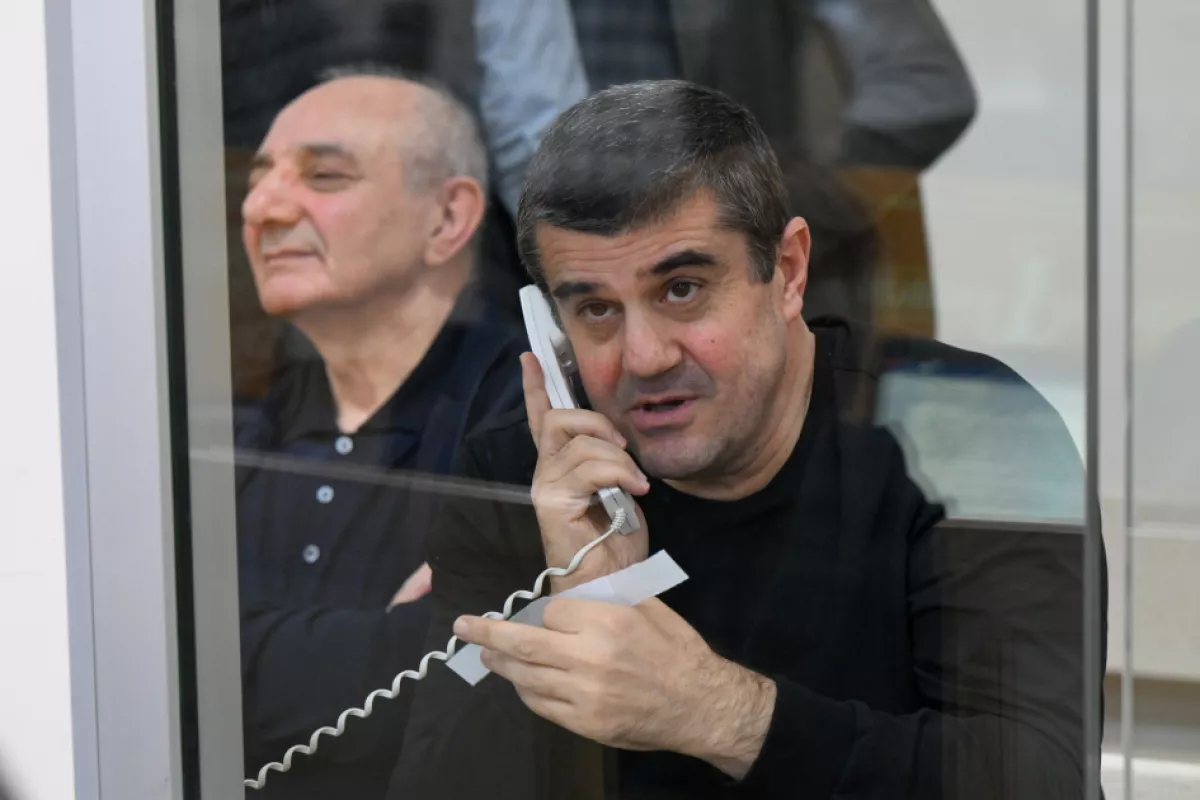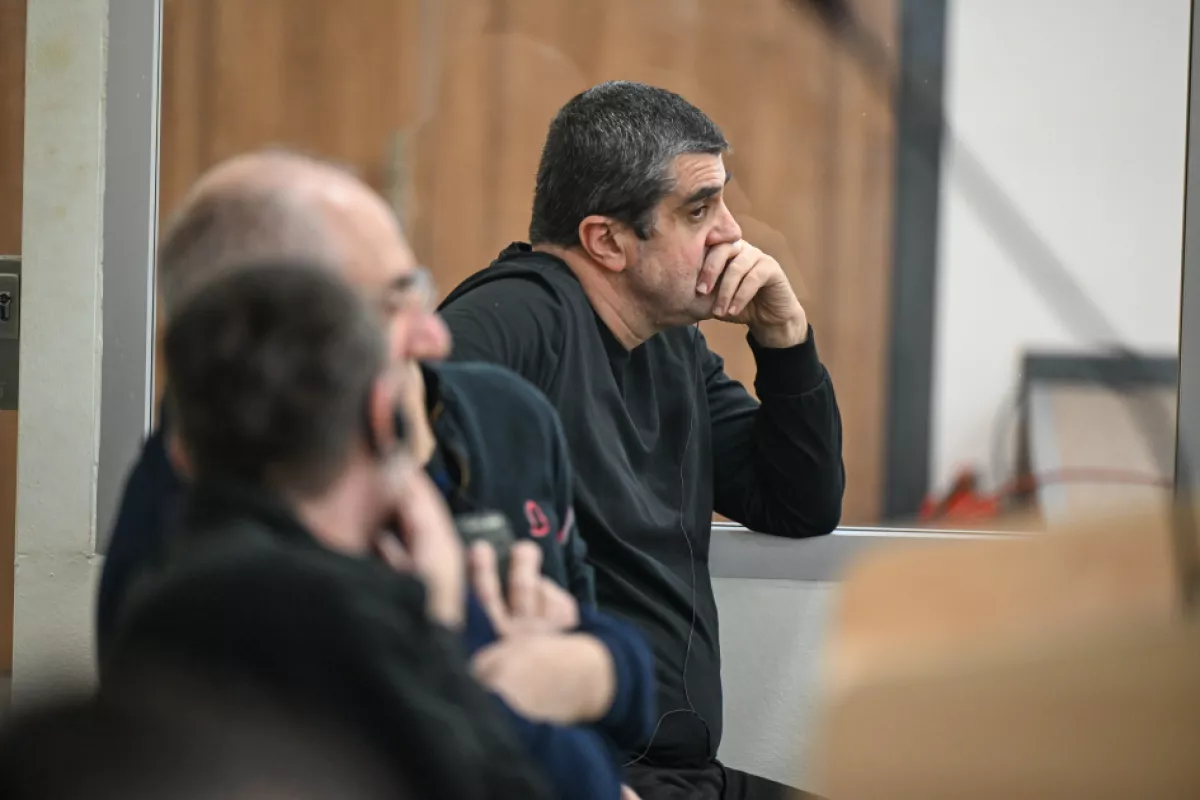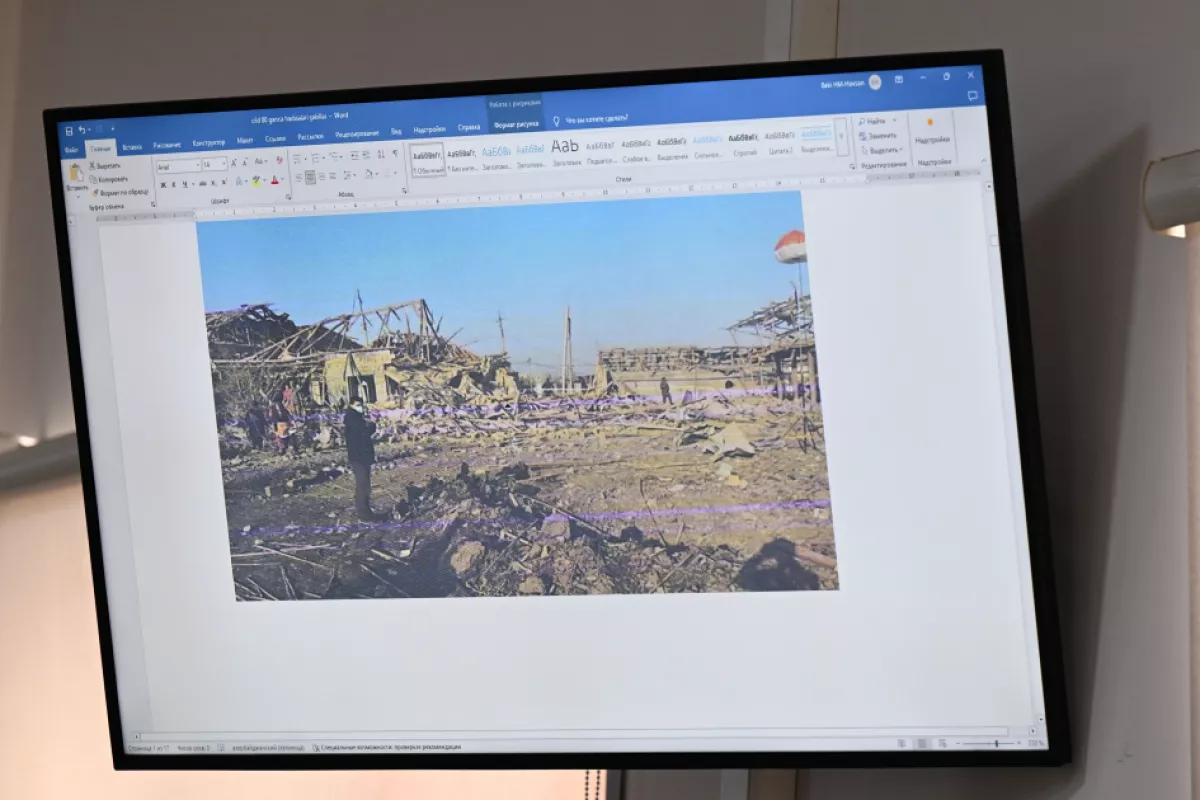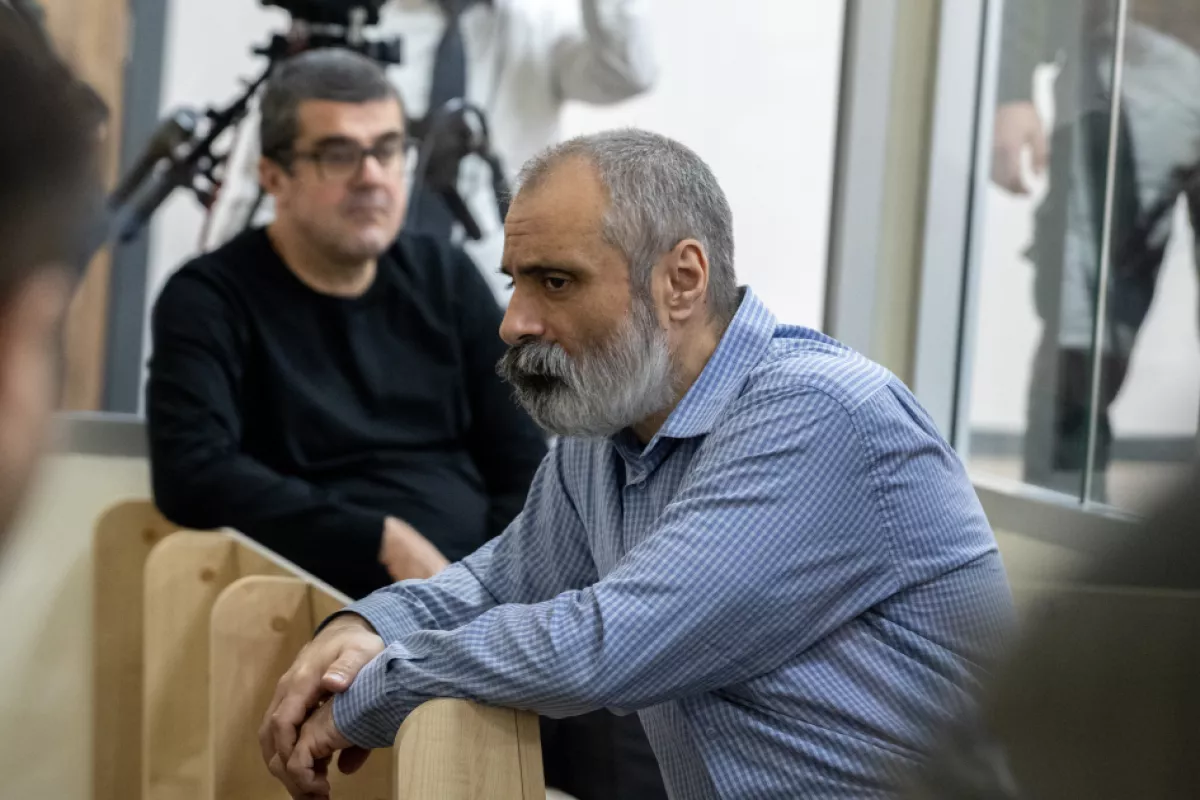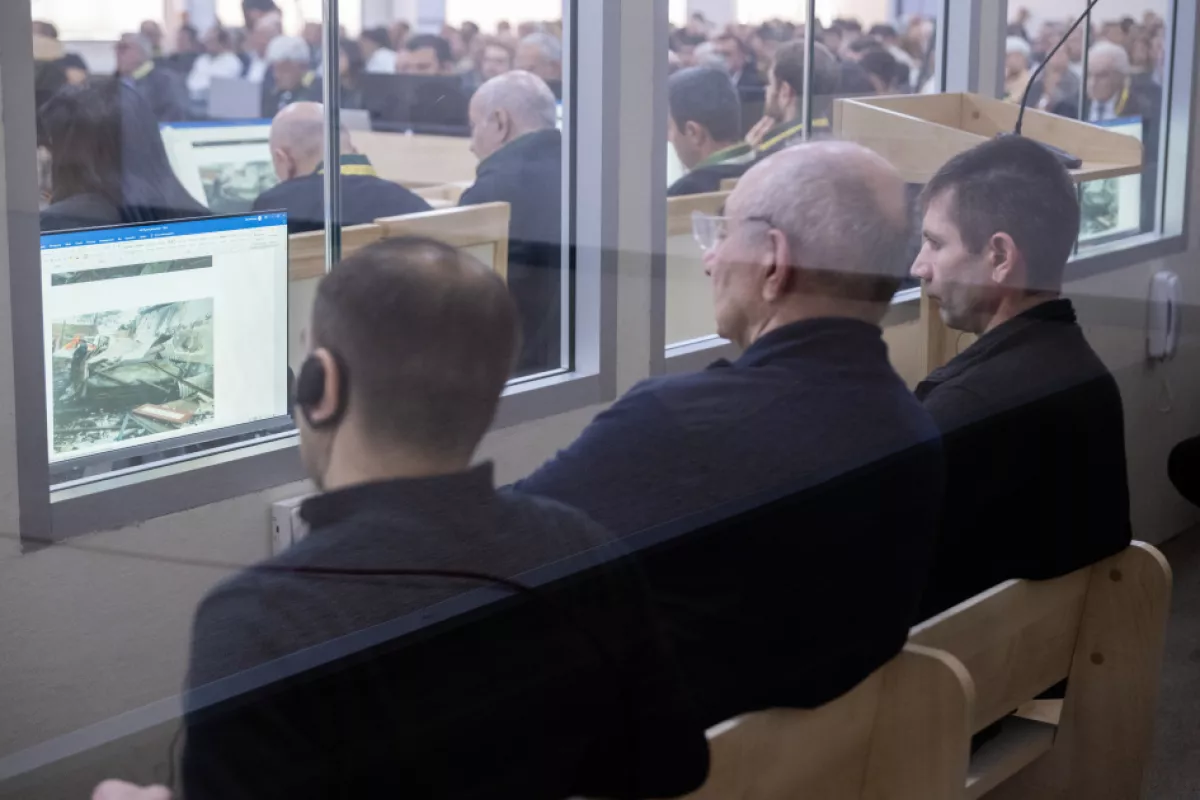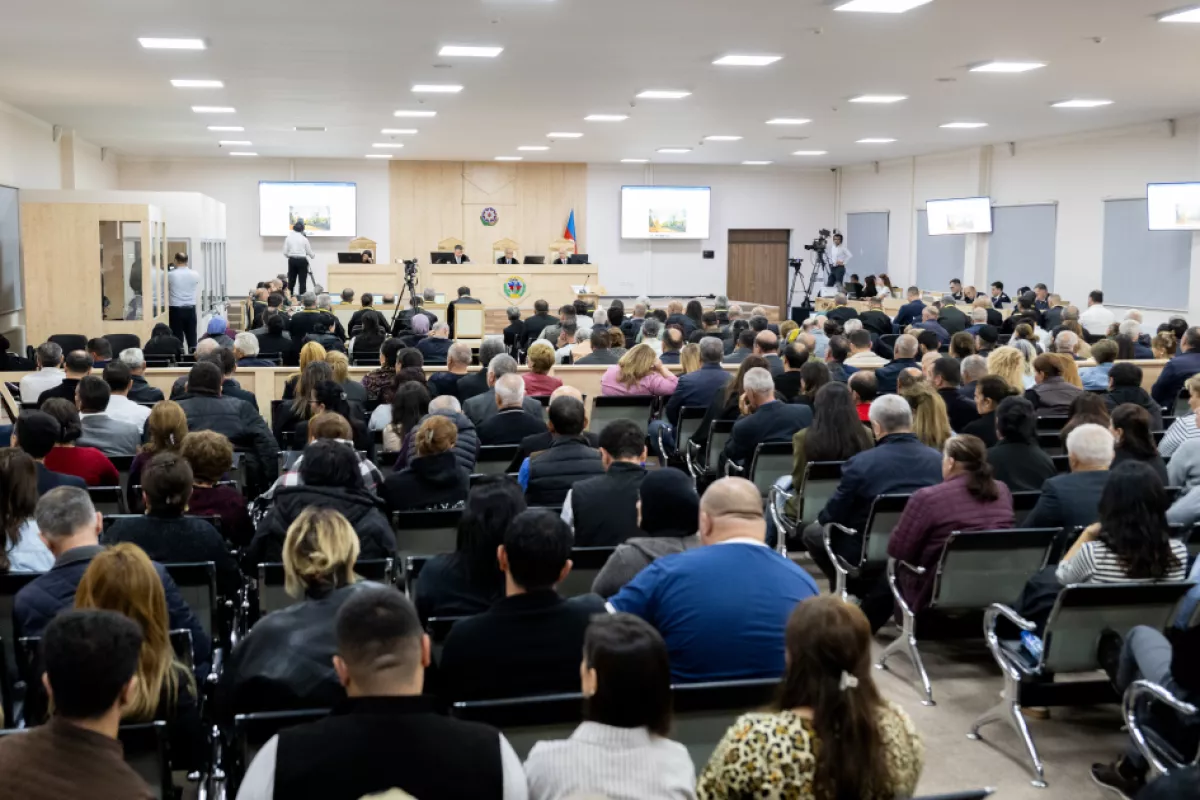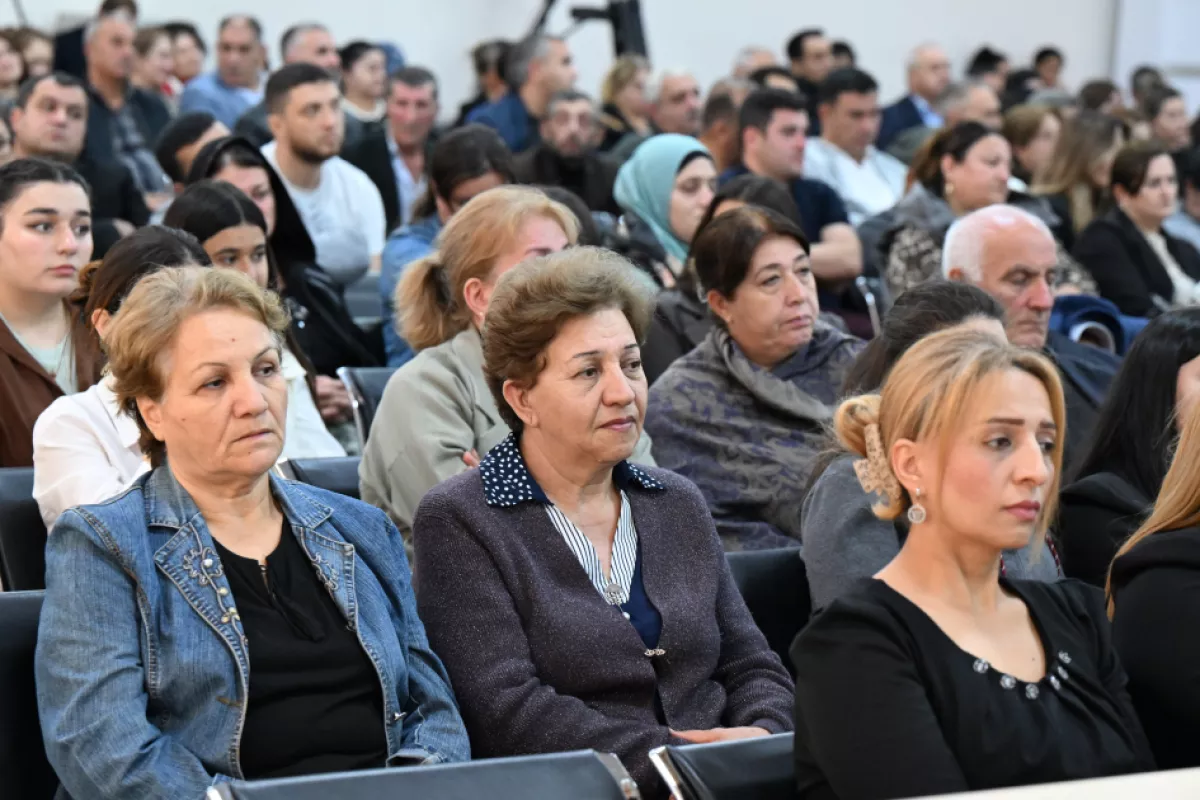Armenian war crimes: Baku court examines evidence of missile strikes on Azerbaijani cities PHOTO
The open court hearing on criminal cases against citizens of the Republic of Armenia, including Arayik Harutyunyan, Arkadi Ghukasyan, Bako Sahakyan, Davit Ishkhanyan, David Babayan, Levon Mnatsakanyan, and others, accused of crimes against peace and humanity, war crimes, including the preparation and conduct of aggressive war, genocide, violation of the laws and customs of war, as well as terrorism, financing of terrorism, forcible seizure and retention of power, and numerous other crimes resulting from Armenia’s military aggression against Azerbaijan, continued on October 6.
The session, held at the Baku Military Court under the chairmanship of Judge Zeynal Aghayev, with a panel consisting of Jamal Ramazanov and Anar Rzayev (reserve judge Gunel Samadova), ensured that each of the accused was provided with an interpreter in their preferred language and defense lawyers, Caliber.Az reports, citing local media.
The hearing was attended by the accused, their defense attorneys, some of the victims, their legal heirs and representatives, as well as prosecutors defending the state’s accusations.
The court proceedings continued with the announcement of documents related to the criminal cases.
First, documents concerning the missile attack on Ganja city during the 44-day Patriotic War in 2020 were read out at the court hearing.
The documents examined in episodes, noted that the Armenian armed forces, grossly violating the ceasefire regime and international law, including the requirements of the Geneva Convention relative to the Protection of Civilian Persons in Time of War of August 12, 1949, on October 4, 5, 8, 11, and 17, 2020, using 9K58 Smerch (BM-30) and 9K72 Elbrus missiles struck residential areas of the city of Ganja, located far from the front line, non-military facilities, as well as civilians.
Thus, the Armenian armed forces committed acts of terrorism and other crimes that resulted in large-scale destruction not due to military necessity, injuries and deaths of civilians, as well as the destruction of a particularly large amount of property of the civilian population.
During the investigation of each of the aforementioned incidents, the crime scenes were inspected, the bodies of the deceased were examined by a forensic expert, medical reports on the victims' injuries were obtained and added to the case file, the legal heirs of the deceased victims were identified and questioned. Simultaneously, decisions were made to recognize the injured persons as victims and ensure their interrogation in the case, as well as witness interviews and realization of other investigative actions.
The documents indicated that as a result of missile attacks on Ganja city on October 4, 5, 8, 11, and 17, 2020, 26 civilians were deliberately killed and 175 were injured to varying degrees.
Of the 26 killed, 10 were men, 10 were women, and 6 were minors. Of the 175 injured, 61 were men, 66 were women, and 48 were minors.
Civilian infrastructure facilities, vehicles, residential buildings, and other structures in the city sustained extensive damage.
According to the documents and the protocol on the preliminary inspection of the scene dated October 11, 2020, it was determined that the Armenian armed forces struck Ganja using a ballistic missile.
Investigations established that the explosion occurred as a result of the detonation of a 9K72 “Elbrus” operational-tactical missile (“NATO classification “SS-1c Scud B”) manufactured in the USSR after 1978.
The missile is believed to have been launched from a distance of up to 275 kilometers, from the Vardenis settlement in Armenia toward Ganja. The R-17 single-stage, liquid-fueled ballistic missile was produced in the former USSR and has been out of production since 1987.
Since this type of missile belongs to operational-tactical weapon systems—strategic assets of the armed forces of the former USSR and the CIS countries—the right to use it lies with the head of state and, with his consent, the minister of defense.
When such missiles are used not against specific military targets but against populated areas and civilian infrastructure, they cause severe consequences, including mass casualties and widespread destruction.
Later, accused David Manukyan appealed to the court and stated that the “leadership and army” of the so-called regime were not authorized to issue orders for the deployment or use of the missile installations.
Judge Zeynal Aghayev noted that at this stage, the process of presenting documents is ongoing, and the defense will be given the opportunity to comment once the presentation is completed.
Then, the lawyer of accused Araik Harutyunyan requested to provide copies of the documents examined during the court session.
Zeynal Aghayev, who chaired the meeting, said that copies of the documents would be provided.
Later, documents regarding the missile attacks on the districts of Goygol, Tovuz, Dashkasan, Samukh, Siyazan, Kurdamir, and Gabala districts, as well as Mingachevir city and Goygol National Park during the 44-day Patriotic War were read out.
Accused Levon Mnatsakanyan’s lawyer requested a confidential meeting with his client.
Judge Zeynal Aghayev granted the request, and the session was adjourned.
Following the adjournment, the court session continued with the publication of documents.
One of the documents concerned the rocket attacks by Armenian armed forces on the city of Barda, located outside the combat zone, during the 44-day Patriotic War.
The documents examined indicate that as a result of rocket attacks on Barda at various times during the Great Patriotic War, 29 people were deliberately killed, including children, women, and the elderly, 112 people were injured, and significant damage was caused to civilian infrastructure, vehicles, residential buildings, and other facilities in the city.
The examination of the documents was accompanied by photographs related to the criminal cases.
The trial will continue on October 9.
Fifteen defendants of Armenian origin are accused in the criminal case concerning numerous crimes committed during the aggressive war waged by the Armenian state - including the aforementioned criminal association - on the territory of Azerbaijan, in violation of domestic and international legal norms. These crimes were committed for the purpose of military aggression against Azerbaijan and were carried out under the direct leadership and participation of the Armenian state, officials of its state institutions, its armed forces, and illegal armed formations, through their written and verbal orders, instructions, and guidelines; material, technical, and personnel support; centralized management; as well as under strict control and under the leadership and direct or indirect participation of Robert Sedraki Kocharyan, Serzh Azati Sargsyan, Vazgen Mikaeli Manukyan, Vazgen Zaveni Sargsyan, Samvel Andraniki Babayan, Vitali Mikaeli Balasanyan, Zori Hayki Balayan, Seyran Musheghi Ohanyan, Arshavir Surenovich Garamyan, Monte Charles Melkonyan, and others.
The following individuals - Arayik Vladimiri Harutyunyan, Arkadi Arshaviri Ghukasyan, Bako Sahaki Sahakyan, Davit Rubeni Ishkhanyan, David Azatini Manukyan, Davit Klimi Babayan, Levon Henrikovich Mnatsakanyan, Vasili Ivani Beglaryan, Erik Roberti Ghazaryan, Davit Nelsoni Allahverdiyan, Gurgen Homeri Stepanyan, Levon Romiki Balayan, Madat Arakelovich Babayan, Garik Grigori Martirosyan, and Melikset Vladimiri Pashayan - are being charged under the following articles of the Criminal Code of the Republic of Azerbaijan: Article 100 (planning, preparing, initiating, and waging a war of aggression); Article 102 (attacking persons or organizations enjoying international protection); Article 103 (genocide); Article 105 (extermination of the population); Article 106 (enslavement); Article 107 (deportation or forced displacement of population); Article 109 (persecution); Article 110 (enforced disappearance of persons); Article 112 (deprivation of liberty contrary to international law); Article 113 (torture); Article 114 (mercenary service); Article 115 (violation of the laws and customs of warfare); Article 116 (violation of international humanitarian law during armed conflict); Article 118 (military robbery); Article 120 (intentional murder); Article 192 (illegal entrepreneurship); Article 214 (terrorism); Article 214-1 (financing terrorism); Article 218 (creation of a criminal organization); Article 228 (illegal acquisition, transfer, sale, storage, transportation, and possession of weapons, ammunition, explosives, and devices); Article 270-1 (acts threatening aviation security); Article 277 (assassination of a state official or public figure); Article 278 (forcible seizure and retention of power, forcible change of the constitutional structure of the state); Article 279 (creation of armed groups not provided for by law); and additional articles.




